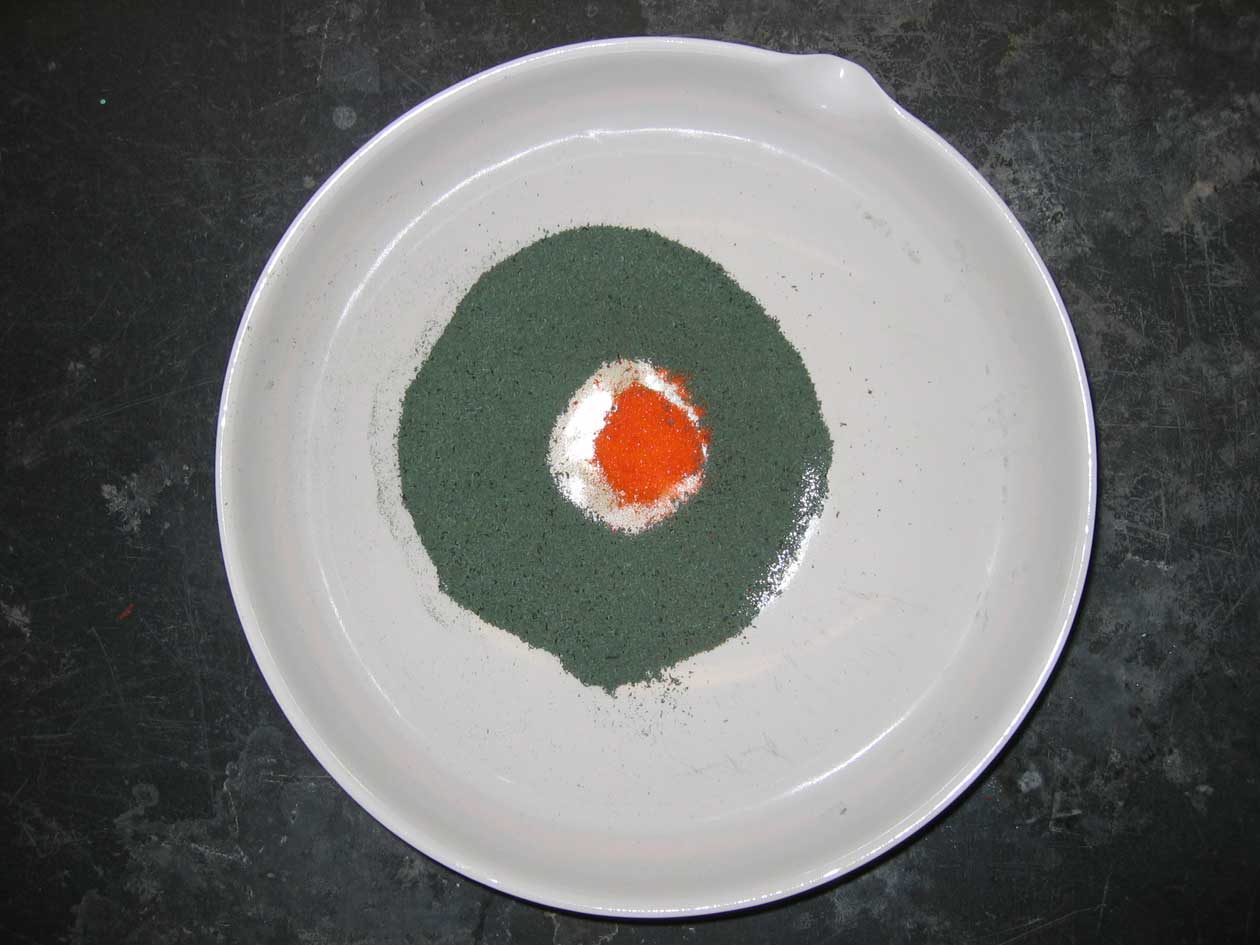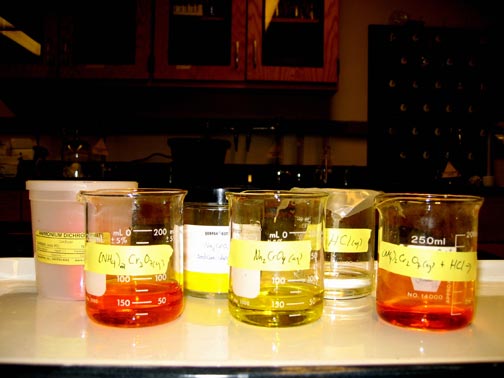The dichromate volcano
 Bright orange crystals are ignited to produce a volcanic eruption of sparks and dark green "ash."
Bright orange crystals are ignited to produce a volcanic eruption of sparks and dark green "ash."
Ingredients: ammonium dichromate crystals, matches
Procedure: A complete recipe follows.
1. Make a small pile of ammonium dichromate crystals on a sheet of aluminum foil.
2. Make a small depression in the center and add a few match heads.
3. Ignite the match heads and step back.
Understanding: The reaction proceeds gradually with bright sparks and a dramatic color change, as the bright orange crystals of the dichromate are converted to a dark green powder of chromium(III)oxide.
(NH4)2Cr2O7(s) → Cr2O3(s) + N2(g) + 4 H2O(g)
The dark green chromium(III)oxide is carried upward on a thermal of hot air rising over the reaction. A large pile of ammonium dichromate makes an excellent mock volcano.The chemical transformation of chromium in the +6 oxidation state, in the dichromate anion, to the +3 oxidation state, in chromium(III)oxide, is an example of a reduction/oxidation reaction.
Ingredients: sodium chromate crystals, sodium dichromate crystals, hydrochloric acid, beaker
Procedure: A complete recipe follows.
1. Prepare an orange solution of sodium dichromate crystals.
2. Prepare a bright yellow solution of sodium chromate crystals.
3. Add hydrochloric acid to the sodium chromate solution until a change in color is observed.
Understanding:
It is also possible to witness a beautiful color change resulting
from a chemical transformation of chromium oxide anions dissolved
in aqueous solution. By dissolving the crystals
in water and varying the pH of the solution, we observe
the brilliant yellow of the chromate ion, CrO42-(aq), transformed to
the bright orange of the dichromate ion, Cr2O72-(aq).
Assign oxidation states to all atoms in the chemical reaction that transforms the chromate ion to the dichromate ion. Is the transformation a reduction/oxidation reaction?
 Hydrochloric acid is used to convert a bright yellow solution of chromate ion to a bright orange solution of dichromate ion.
Hydrochloric acid is used to convert a bright yellow solution of chromate ion to a bright orange solution of dichromate ion.
Redox redux
Question:
Assign oxidation states to all atoms in the chemical reaction of the dichromate volcano. Identify species that are oxidized, and those that are reduced.